Yellowjackets
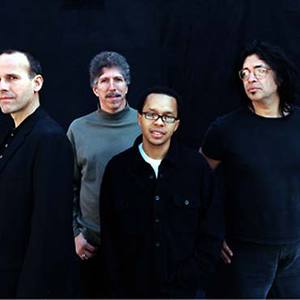
- Genre:
- Jazz
- Meta styles:
- Fusion, Jazz Instrument
- Styles:
- Crossover Jazz, Fusion, Smooth Jazz
In 1977, Robben Ford assembled a group of veteran session musicians to record his album The Inside Story. The trio of musicians, which included keyboardist Russell Ferrante, bassist Jimmy Haslip and drummer Ricky Lawson, soon discovered a certain "chemistry" and musical affinity that led to their formation of Yellowjackets. The Inside Story being mainly instrumental, Robben Ford's record label wanted him to record another album that was more pop and vocal oriented. The group, known as the Robben Ford Group, preferred to pursue the instrumental route, and a "band within a band" was formed.
This same group with Robben Ford on guitar recorded digital demos that were eventually accepted by Warner Brothers, and Yellowjackets was born. While Robben's contributions would diminish over the years to being a guest artist, the group known as Yellowjackets would flourish.
Their debut album Yellowjackets made serious waves in jazz radio, garnering public and critical acclaim. Mirage A Trois followed in its footsteps. While they went on a brief hiatus to pursue other projects, they reassembled in time for the 1984 Playboy Jazz Festival, adding percussionist Paulinho Da Costa and their new lead voice, sax man Marc Russo. This landmark concert paved the way for their eventual success both on the Billboard Jazz charts and concert venues around the world, and resulted in the third spicy Yellowjackets album Samurai Samba. 1986 saw the group moving over to MCA Records to record Shades, the title track being written by Donald Fagen (of Steely Dan fame) as a tribute to the many "shades" he heard in the group's music.
With their album Four Corners, Ricky Lawson departed to join Lionel Richie's touring band and was replaced by the versatile William Kennedy. This rock-solid lineup took the Yellowjackets into new territory, exploring world beats and densely-populated soundscapes that reflected a growing maturity in their music. Politics, the follow-up to Four Corners, mellows out, and the group sheds some of the electronic elements and starts exploring acoustic sounds. Marc Russo's final recording with Yellowjackets, The Spin, was recorded in Oslo, Norway by noted engineer Jan Erik Kongshaug (well known for his work on the ECM label), and the Jackets proved that they could belt out acoustic jazz with the best!
Greenhouse ushered in a new era. With Marc gone, the Yellowjackets trio would record one of their most adventurous albums to date, featuring ace big band arranger and saxophonist Bob Mintzer on many of the tracks, and string accompaniments on a handful of others. Shortly thereafter, Bob Mintzer became a bona fide member of Yellowjackets. The Jackets also recorded on one of Bob Mintzer's dmp Records projects, One Music. Live Wires captures the group in concert with Mintzer at the helm. The two albums that followed, Like A River and Run For Your Life, reflected a growing interest in straight-ahead acoustic jazz.
With 1995's Dreamland, Yellowjackets returned to their first record label, Warner Brothers, producing their most relaxed, and relaxing, recording to date. Blue Hats is more spontaneous than its predecessors, musically rich and particularly revealing in showing how Yellowjackets have evolved since that landmark first album. Club Nocturne, their latest studio recording, achieves great crossover appeal with the guest vocalists Kurt Elling, Jonathan Butler and Brenda Russell. And while the Yellowjackets of today sound little like the original Yellowjackets from fifteen-plus years ago at first listen, the unmistakable talents of the individuals involved still have the unique signatures that shine through regardless of their musical setting, whether it be blistering-hot fusion or full-blown acoustic jazz. In other words, their music has evolved and matured considerably, but there's no mistaking that it is Yellowjackets you are hearing.
- Sort by

Fasten Up
- Year:
- 2025
- Tracks:
- 11
- Bitrate:
- 320 kbps
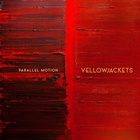
Parallel Motion
- Year:
- 2022
- Tracks:
- 9
- Bitrate:
- 320 kbps
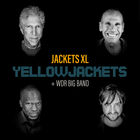
Jackets Xl
- Year:
- 2020
- Tracks:
- 10
- Bitrate:
- 320 kbps

Raising Our Voice
- Year:
- 2018
- Tracks:
- 13
- Bitrate:
- 320 kbps
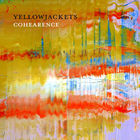
Cohearence
- Year:
- 2016
- Tracks:
- 10
- Bitrate:
- 320 kbps
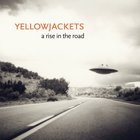
Rise in the Road
- Year:
- 2013
- Tracks:
- 10
- Bitrate:
- 320 kbps
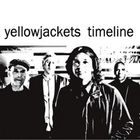
Timeline
- Year:
- 2011
- Tracks:
- 11
- Bitrate:
- 320 kbps
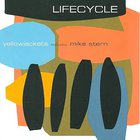
Lifecycle
- Year:
- 2008
- Tracks:
- 10
- Bitrate:
- 320 kbps
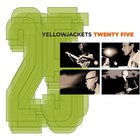
Twenty Five
- Year:
- 2006
- Tracks:
- 8
- Bitrate:
- 320 kbps
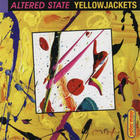
Altered State
- Year:
- 2005
- Tracks:
- 11
- Bitrate:
- 320 kbps
 Fattburger 14
Fattburger 14 Spyro Gyra 40
Spyro Gyra 40 The Crusaders 37
The Crusaders 37 Chris Botti 15
Chris Botti 15 Cindy Bradley 9
Cindy Bradley 9 Danny Gottlieb 4
Danny Gottlieb 4 Elements 1
Elements 1 Mike Mainieri 7
Mike Mainieri 7 Return to Forever 25
Return to Forever 25 Special EFX 24
Special EFX 24 Steps Ahead 14
Steps Ahead 14 The Blackbyrds 11
The Blackbyrds 11 Brian Bromberg 26
Brian Bromberg 26 The Brecker Brothers 12
The Brecker Brothers 12 Jeff Lorber 17
Jeff Lorber 17 L.A. Express 2
L.A. Express 2 Cabo Frio 2
Cabo Frio 2 Jimmy Haslip 3
Jimmy Haslip 3 Larry Carlton 38
Larry Carlton 38 Pieces Of A Dream 24
Pieces Of A Dream 24 Tribal Tech 16
Tribal Tech 16 Vincent Ingala 8
Vincent Ingala 8